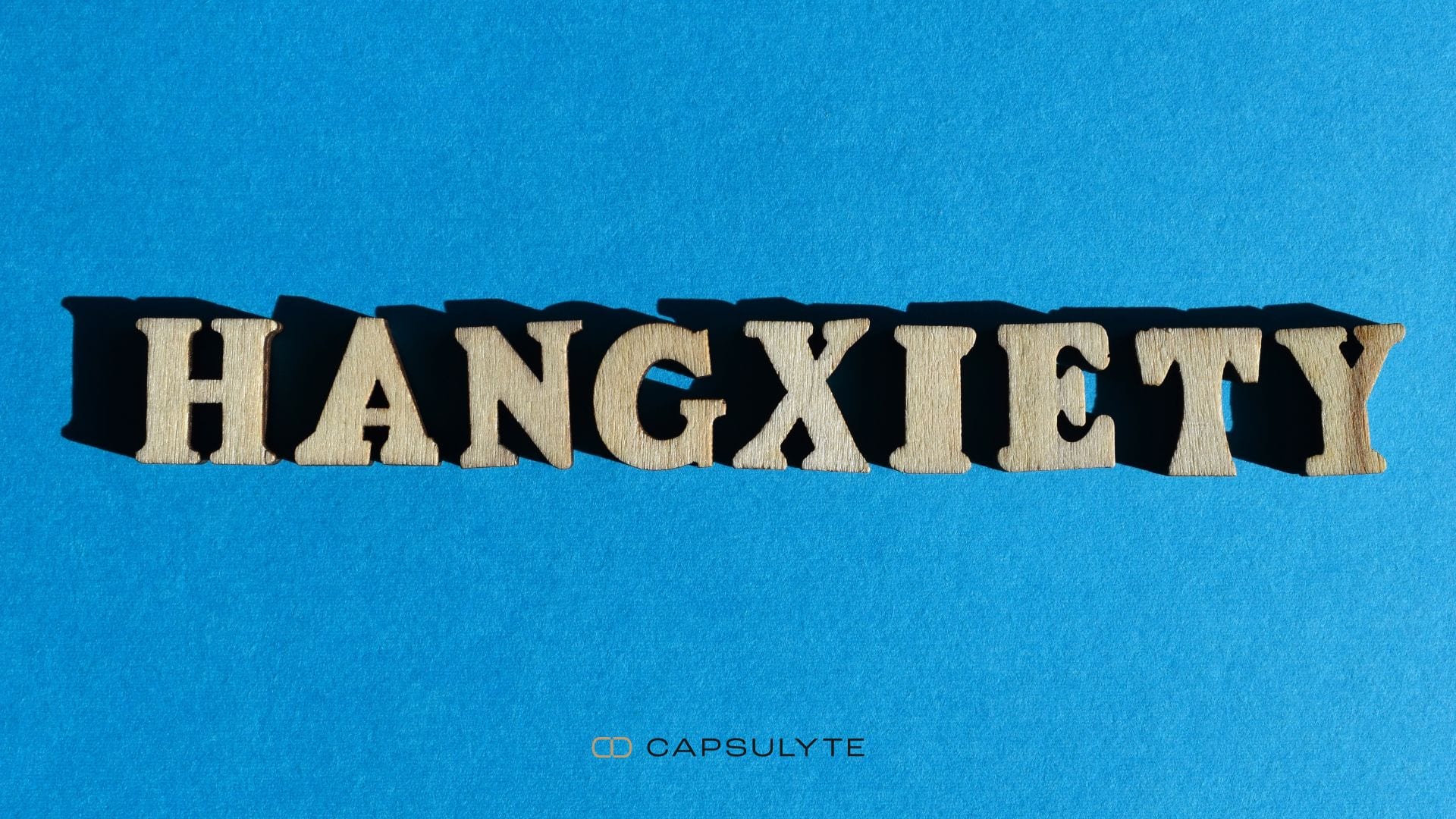
How Long Do Hangovers Normally Last?
Pretty much anyone who’s gone to sleep after a night out and woken up to deal with nausea, vomiting, headaches, and other horrible hangover symptoms has wondered how long they can expect these challenging symptoms to persist.
Keep reading as we help you navigate this incredibly common yet highly unpleasant experience. We’ll explain what a hangover is, provide an overview of how long hangovers normally last, and highlight key strategies that may shorten the duration of unpleasant symptoms the day after a heavy drinking session.
What Is a Hangover?
Before we get into the nitty-gritty of how long hangovers last, let’s make sure we’re on the same page with our understanding of what hangovers entail.
Although “hangover” isn’t an official medical term—technically, that’s “veisalga”—it refers to a collection of unpleasant and sometimes debilitating symptoms that happen after excessive alcohol consumption. Hangovers typically occur after your body processes the alcohol in your system and your blood alcohol levels have begun to drop, eventually reaching 0 percent (most often when waking up after a night of drinking).
Typical Hangover Symptoms
Hangover symptoms can vary from person to person, but those experiencing a hangover can expect at least a few of the following symptoms:
- Fatigue
- Dehydration, thirst, and dry mouth (because alcohol is a diuretic, meaning it increases urination)
- Poor sleep
- Headache
- Muscle pain and body aches
- Nausea and vomiting
- Stomach pain
- Vertigo
- Elevated blood pressure
- Low blood sugar levels
- Sensitivity to light and sound
- Anxiety (see our article on “hangxiety” for more details on this phenomenon)
Hangover symptoms tend to peak in severity when blood alcohol levels first fall back down to 0 percent, then gradually dwindle as the body bounces back from heavy alcohol consumption. When the body has finished processing the toxic byproducts of alcohol metabolism (such as acetaldehyde), rehydrating after dehydration, and mending inflamed tissue, the hangover symptoms should end.
In General, How Long Do Hangovers Last?
Hangovers can last an estimated 24 hours or more. In addition, according to a study focusing on the duration of alcohol hangovers, most subjects’ hangovers ranged in length from 14 to 23 hours, and averaged 18.4 hours from the moment of stopping alcohol consumption (or about 12 hours from waking up the next day). However, keep in mind that this study focused on a group of students between the ages of 18 and 30, which means the study is notably skewed—older people often experience more severe and prolonged hangovers.
Variables That Impact Hangover Length
The duration of a hangover depends on a number of factors:
- Number of alcoholic beverages consumed
- Amount of water and other non-alcoholic beverages consumed
- Whether or not you eat enough before drinking (drinking on an empty stomach is a bad idea!)
- Age (on average, the liver processes one drink per hour, but it can slow down as we get older)
- Length and quality of sleep after drinking
- Genes that affect alcohol metabolism
- Use of other drugs, such as nicotine, while drinking
- Whether or not you consumed darker colored alcohol (e.g., whiskey)—these types of alcohol often contain more congeners, which are minor non-ethanol compounds that can worsen hangovers
These are just a few of the most common factors that can affect the length of your hangover. There are many other variables that can also worsen alcohol’s impact on the body, resulting in more long-lasting hangover symptoms.
Strategies That May Help Minimize Post-Drinking Symptoms
Thankfully, it’s not necessary to stop drinking altogether to avoid these kinds of unpleasant hangover symptoms the morning after a night out. Here are some of our top suggestions to support your body before, during, and after alcohol consumption:
Take PREGAME Before You Start Drinking Alcohol
In addition to eating a hearty meal with plenty of healthy fats, protein, and fiber so you’re not drinking on an empty stomach, we also recommend taking Capsulyte’s PREGAME supplement in advance.
PREGAME contains a combination of ingredients chosen by internal medicine physician Dr. Dan Nguyen, MD, MBA for their evidence-based abilities to support your body through alcohol consumption. These include N-acetyl cysteine (NAC), which shows significant potential for reducing the severity of post-drinking symptoms; dihydromyricetin (DHM), which is an antioxidant and anti-inflammatory that may reduce stress and improving cognition; Clovinol®, another antioxidant and anti-inflammatory that can minimize post-drinking symptoms by about 55 percent; and Siliphos®, a compound derived from milk thistle that may protect the liver from alcoholic liver disease-related cirrhosis and other damage from alcohol consumption.
Ways to Pace Yourself While Drinking
One of the best ways to shorten the duration of post-alcohol symptoms is by avoiding binge drinking in favor of drinking in moderation. To do so, you should always keep track of how many drinks you’re consuming, ideally setting a reasonable limit for yourself in advance to avoid going overboard. In addition to reducing the amount of alcohol you consume, you can also counteract the dehydrating effects of alcohol by making sure to drink a full glass of water between every alcoholic beverage.
Afterwards, Rehydrate with a High-Quality Electrolyte Supplement
One of the best ways to bounce back from a night of drinking is by taking an electrolyte supplement, such as Capsulyte’s HYDRATION. This supplement was formulated to help the body recover from dehydration caused by alcohol, and it may even shorten the duration of dehydration-related symptoms.
HYDRATION contains an essential blend of sodium, potassium, magnesium, and calcium in optimal ratios, known as Hydra 4G™. Other beneficial ingredients found in HYDRATION include B vitamins (which may regulate neurological function, energy metabolism, and formation of red blood cells), Liposomal Pureway C™ (a highly bioavailable form of vitamin C may support the immune system and neutralize free radicals that can lead to chronic illness), and zinc (another important mineral involved in immune function).
By following the suggestions above, you can support your body’s ability to cope with alcohol consumption with effective antioxidant, anti-inflammatory, and otherwise beneficial compounds. Check out the Capsulyte blog for even more info on how Capsulyte may help your body and mind bounce back from alcohol’s effects.


